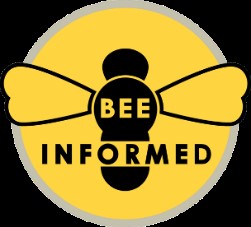Dear Beekeeper:
We need your help. Please take 30 minutes out of your busy day to complete these two surveys. Both surveys are only open from 1 April through 30 April 2017.
Please click on the link below or paste it into your browser to participate in the National Loss and Management Survey:
http://26.selectsurvey.net/beeinformed/TakeSurvey.aspx?SurveyID=2017
The online survey is live now and will close on April 30th. PLEASE do not complete the survey more than once. Information about past Colony Loss and Management Surveys and the annual reports can be found online at http://beeinformed.org/.
We are excited to share our dynamic state map where you can view state losses from all years of the survey. Please view this at: https://bip2.beeinformed.org/geo/. At that site, you will see annual, winter and summer losses as well as the number of participants and colony numbers for your state. Dynamic management reports that have resulted from previous years’ surveys can now be found at https://bip2.beeinformed.org/survey. This exciting data management explorer lets you and your beekeepers see what actionable practices are correlated with improving survivorship!
2015-2016 was the first winter in which Backyard beekeepers reported Varroa as a top cause of loss and 2015-2016 summer losses rivaled winter loss rates for the 2nd year in a row. These findings and trends are vitally important for the industry and we need your participation!
Some of you may be contacted independently by the National Agricultural Statistics Service (NASS) of the USDA to participate in their first quarterly colony loss survey. We encourage all beekeepers contacted by NASS to answer both BIP and NASS surveys. But we need your responses!
The Colony Loss Survey has evolved from our winter loss survey conducted 11 years ago. Now we monitor summer losses as well. The two surveys (Loss and Management) are aimed at looking for relationships between colony losses and colony management (including disease treatment strategies, supplemental feeding, etc.) and/or other factors that may influence colony health (such as colony location, honey production, and forage type). Your participation in this research is voluntary and your responses will be kept confidential. In any publication or presentation resulting from this research, no personally identifiable information will be disclosed.
If you have any questions or comments, please contact us at support@beeinformed.org. Once again thank you for your participation.

Dennis vanEngelsdorp, President Bee Informed Partnership, Inc. University of Maryland |

Karen Rennich, Executive Director Bee Informed Partnership, Inc. University of Maryland |







